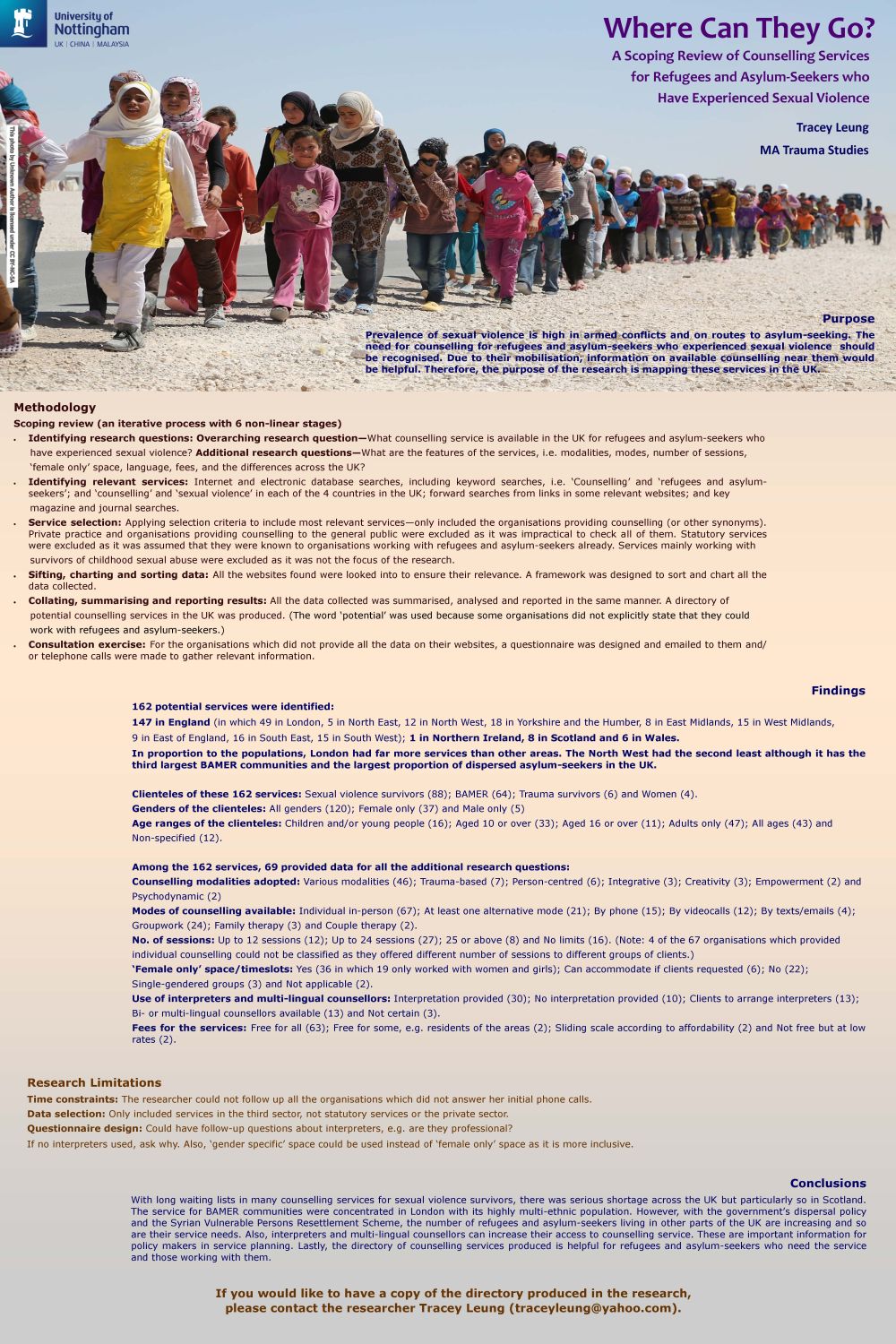
Aims or purpose
Prevalence of sexual violence (SV) is high in armed conflicts and on routes to asylum seeking. The need for counselling for refugees who experienced SV should be recognised. Due to their mobilisation, information on available counselling near them would be helpful. Therefore, the purpose of the research is mapping these services in the UK.
Design and methodology
Scoping review (6 non-linear stages)
- Identifying research questions: Counselling for refugees and asylum-seekers who experienced SV and their features, i.e. modalities, modes, number of sessions, ‘female only’ space, language, fees, differences across the UK.
- Identifying relevant services by internet and electronic database searches.
- Service selection: applying selection criteria to include most relevant services.
- Sifting, charting and sorting data
- Collating, summarising and reporting results
- Consultation exercise: Questionnaires via emails and telephone calls were made to the organisations for further information.
Ethical approval
University of Nottingham.
Results and findings
162 potential services identified. 69 provided data for all the additional research questions:
- 46 adopted various modalities
- 67 provided individual face-to-face sessions
- 21 had at least one alternative mode
- 27 provided up to 24 sessions (most common practice)
- 36 provided ‘female only’ space
- 30 provided interpretation
- 13 had bi- or multi-lingual counsellors
- 63 were free of charge
Among the 162 potential services:
- 147 were in England in which 49 in London
- 1 in Northern Ireland
- 8 in Scotland
- 6 in Wales
Proportionately, London had far more services than other areas. The North West had the second least although it has the third largest BAMER communities and the largest proportion of dispersed asylum-seekers.
Research limitations
Time constraints: the researcher could not follow up all the organisations which did not answer her initial phone calls.
Data selection: only included services in the third sector, not statutory services which were assumed known to organisations working with refugees, nor the private sector because it was impractical to inquire all private practitioners.
Questionnaire design: could ask follow-up questions about interpreters (professional?); if no interpreters, why. Also, ‘gender specific’ could be used instead of ‘female only’ as it is more inclusive.
Conclusions and implications
Counselling for refugees with SV experience is in serious shortage. Interpreters and multi-lingual counsellors can increase their access to service.
Views expressed in this article are the views of the writer and not necessarily the views of BACP. Publication does not imply endorsement of the writer’s views. Reasonable care has been taken to avoid errors but no liability will be accepted for any errors that may occur.
